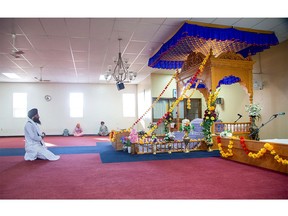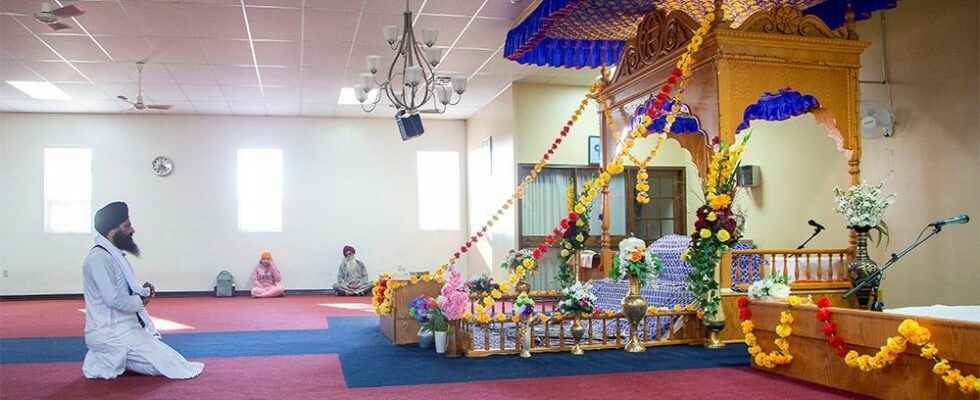The number of Londoners who identify as Christians has gone down significantly during the past decade while secularism and other religions are on the rise across the region, the latest census numbers show.

The number of Londoners who identify as Christians has gone down significantly during the past decade while secularism and other religions are on the rise across the region, the latest census numbers show.
A total of 298,160 residents – or roughly 50 per cent of residents in the London region – identified themselves as Christians in the 2021 census, according to figures compiled by Statistics Canada. That’s down by almost 25,000 people, about eight per cent, compared to 2011, when similar data was last released.
Among Christians, the Anglican and Presbyterian denominations saw the biggest drops in the number of followers, declining by 37.6 per cent and 33.8 per cent respectively. About 114,000 people identified as Catholic, almost 7,000 fewer than in 2011.
By contrast, a little more than 202,000 people, or 37 per cent of the London area population, said they had no religious affiliation. That’s about 60,000 more than a decade ago.
“It is a very high number compared to historical proportions,” said Howard Ramos, professor of sociology at Western University.
“Many of the people who identify as no religion are probably people who would have, in the past, identified with a Christian.”
-

ANALYSIS: How London got ‘on the map’ for immigration amid boom
-

London will look ‘increasingly’ like Toronto as immigration grows: Expert
Islam became the second most practiced religion in the London area, which includes Strathroy, St. Thomas and portions of Middlesex and Elgin counties.
According to the data, a little more than 35,000 people, or 6.69 per cent of the total population in the region, identified themselves as Muslim.
Though they still represent a very small portion of the population, the number of Hindus and Sikhs grew exponentially during the past decade in London, too.
Immigration is the reason behind the increase in the popularity of other religions, Ramos said.
In fact, data released from Statistics Canada on Wednesday shows more than one in five residents in the London area are immigrants.
“What this really reflects is London is receiving newcomers at a higher rate than it did in the past,” Ramos said.
“Many of these faiths are the faiths of people who come from the regions where we have been receiving newcomers.”
But the reasons why the number of Christians is in decline can be varied, said Carolyn Chau, associate professor of religious studies at King’s University College.
For instance, she said sexual abuse scandals involving minors and, in Canada, the role of the church in the residential school system have caused many people to distance themselves from religious institutions.
That’s been coupled with people’s willingness to explore other forms of spirituality, such as meditation, and community building, Chau said.
“Culturally speaking, we are a much more individualistic culture,” she said.
“We understand ourselves today more than ever as individuals first, then as members of a community. So, that’s a philosophical point that affects how we pursue meaning in our lives. . . and some may feel it’s simpler to perceive and experience meaning and purpose without the perceived burdens of rules and regulations when people think of religion.”
Ramos noted London trends mirror those seen nationally and across Western nations.
And while Christianity may be in the decline, religion still plays an important role in the local community, he said.
“Although almost 40 per cent of people in London are not practicing a religion or claim no religion, it’s really important to put that in balance that the majority of people still practice a faith,” he said.
“There’s a greater share of people who are not, but the vast majority still have some kind of faith that they practice in one way or another.”
